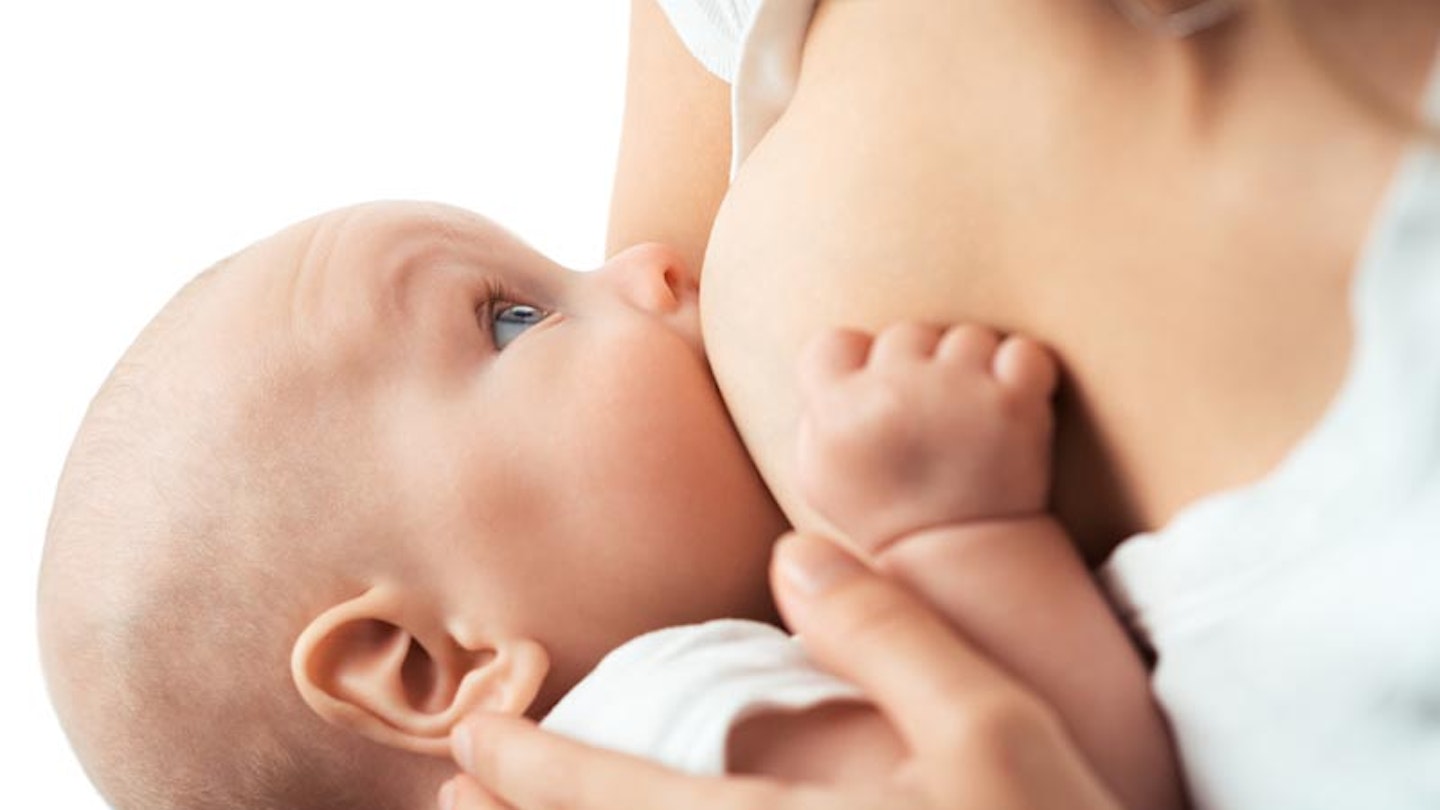With so much advice about breast versus bottle, it can be hard to decide how long to breastfeed for. Work out what’s right for you and your baby – whether it’s one day or two years - read our expert advice, find out the benefits, and read real mums’ personal stories…
Benefits: Your baby benefits from colostrum, which supplies nutrients. The closeness helps her to feel secure. It helps your uterus contract quickly to reduce the risk of a post-birth haemorrhage.
Tricky bits: It can be stressful, painful and the feeds erratic as you and your baby learn what to do.
Handy hint: Have as much skin-to-skin contact with your baby as possible to allow him to put his innate feeding instincts into practice.
Gemma Norman, mum to Frank, says: ‘A combination of me not producing enough milk and Frank not latching on meant I had no choice but to bottle-feed, but the midwives helped me to syringe milk from my breast into him.’
1 week
Benefits: Your baby’s stomach has stretched to match your increasing milk supply. Frequent feeds will now have primed your breasts for long-term milk production.
Tricky bits: Your baby may lose more than 10% of his birth weight. Engorgement (full breasts) can be very painful.
Handy hint: Soothe engorged breasts with a bag of frozen peas wrapped in a muslin square, and feed more frequently if you need to
Hayley Fenwick, mum to Heidi, says: ‘A nurse showed me how to get Heidi to latch on, but when I tried at home, I struggled. I followed my instinct and made the decision to formula-feed.’
1 month
Benefits: Your milk makes your baby less likely to develop food allergies or have diarrhoea and chest and ear infections. Night feeds are easy and there’s no need to wash and sterilize bottles.
Tricky bits: You might feel as if feeding takes a long time and that it’s more difficult than bottle-feeding.
Handy hint: Surround yourself with people who support, not question, your decision to breast-feed or bottle-feed.
Fern Blackmore, mum to Midge, says: ‘A bottle meant my partner could feed her. We moved house when Midge was six weeks, so not breastfeeding meant it was easier for my parents to look after her.’
3 months
Benefits: Your baby will be 27% less likely to develop childhood diabetes. If your family has a history of asthma, she’ll be up to 40% less likely to develop it. It’ll help you to lose your baby-weight too.
Tricky bits: She may start to pop on and off your breasts frequently to survey her surroundings as she becomes more social.
Handy hint: Wear a nursing shawl if you’re embarrassed feeding in public because your baby pops off your breast.
Kelly Innes, mum to Annabel, says: ‘Breastfeeding didn’t come naturally to me, but I kept going to protect her from illness with the antibodies in my milk. When Annabel gotchickenpox at three months, I stopped.’
6 months
Benefits: She’s less likely to develop allergies to common triggers such as cow’s milk, which makes weaning easier. There’s a reduced risk of leukaemia too. You are less likely to develop breast and ovarian cancers as well as osteoporosis.
Tricky bits: Your baby might only want to feed for 10 minutes, leaving you worried that she’s not getting enough milk.
Handy hint: Trust your baby to take as much milk as she needs. She’s growing at a slower rate now, so follow her lead.
Fi Star-Stone, mum to Oscar, says: ‘I gradually weaned him off the breast as he was very, very hungry. By seven months he was weaned on to a combination of solid food and formula.’
12 months
Benefits: The muscles your baby uses to breastfeed are also important for speech, and she continues to get immune-boosting benefits. And you’ve saved £546 by not buying formula (based on a baby having eight daily 90ml feeds).
Tricky bits: You may be emotionally tired of constantly being touched and feel you want to reclaim your body.
Handy hint: Make sure you create time for yourself.
Lucy Marcovitch, mum to Lily, says: ‘A year seemed like a natural amount of time and it just felt right. I went back to work, so I weaned her gradually, but carried on expressing for a while.’
18 months
Benefits: Skin-to-skin reduces your baby’s stress hormone production and her immunity continues to grow. As your child is getting bigger, you have to sit down and have a rest at feeding times, even when you’ve a million things on your ‘to do’ list.
Tricky bits: An 18-month-old may use breastfeeding to curb boredom and get your attention (usually as soon as you answer the phone!).
Handy hint: Introduce a feeding chair, which you only use for feeds. Your little one will quickly realise that signifies feeding time.
Priya Tew, mum to Kezia, says: ‘Kezia just stopped all by herself. I was waiting for her to be ready to stop and she simply got to a point where she didn’t ask for any more milk.’
2 years or more
Benefits: You’ll probably only feed first thing in the morning and last thing at night, so it’s a great way to bookend the day. Your tot continues to get an immunity boost, helping her to fight the bugs that she encounters during her increasingly busy days.
Tricky bits: It can be embarrassing when an older toddler announces that she wants milk or tugs at your shirt.
Handy hint: Find a word that you both understand relates to feeding, that you’re happy to use in public.
Kimberley Tyler, mum to Lottie, says: ‘I was a very reluctant breastfeeder to start with, as I lacked body confidence. But breastfeeding worked well for us both. I stopped when Lottie gave up!’
Now read:
